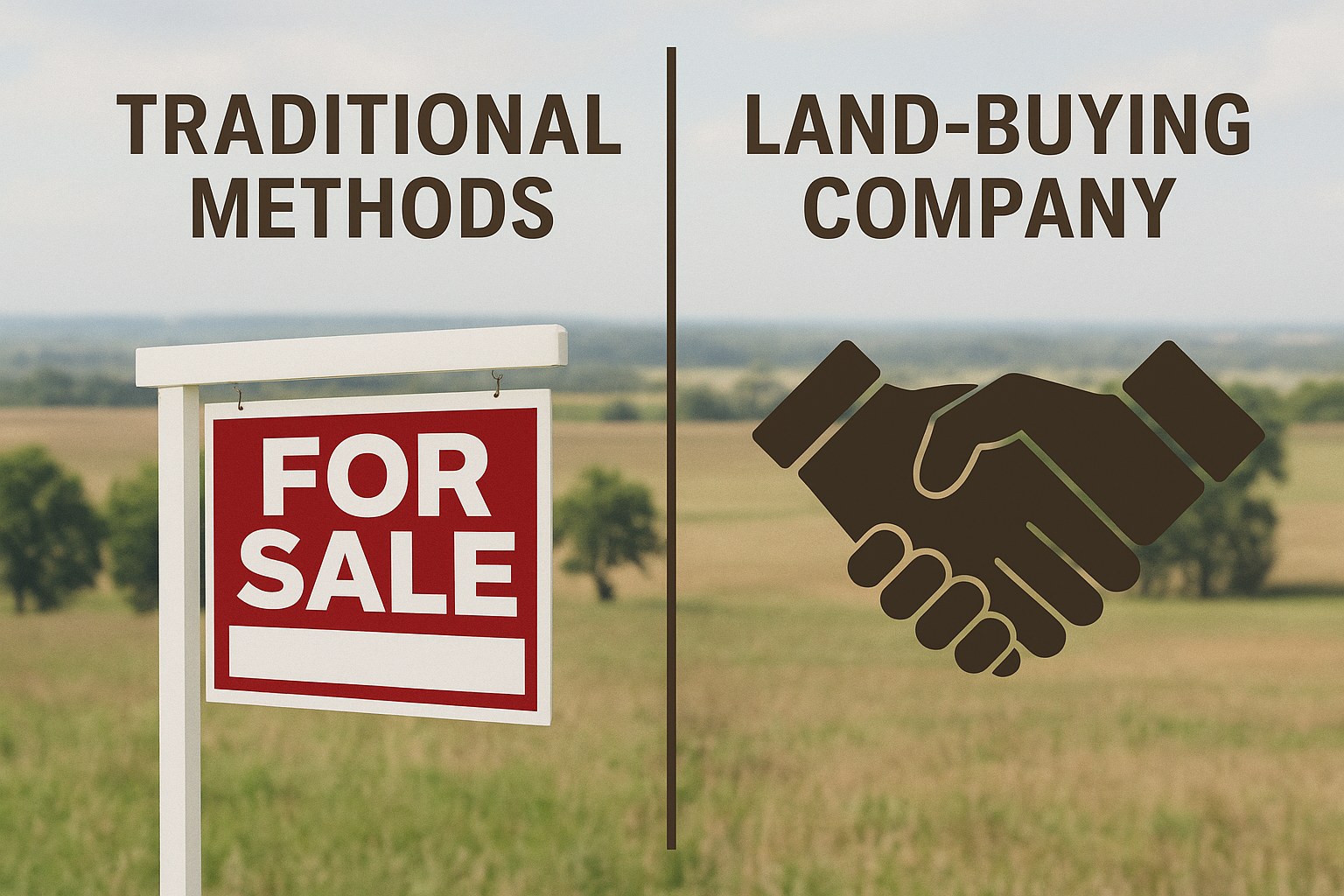Selling land involves a distinct legal process that differs significantly from selling developed properties. The absence of buildings, different due diligence requirements, and unique title considerations create a specialized transaction pathway that many land sellers find unfamiliar. Understanding this process is crucial for avoiding delays, preventing legal complications, and providing a smooth transaction. This comprehensive guide walks landowners through each stage of the legal journey when selling vacant land, from initial preparation to completion.
Pre-Marketing Legal Preparation
Thorough legal groundwork before listing significantly reduces transaction risks.
Title Investigation and Verification
Establishing clear ownership and identifying potential issues:
- Title deed examination: Reviewing the official ownership documentation
- Land registry verification: Confirming registered boundaries and ownership
- Restrictive covenant identification: Discovering any usage limitations
- Easement and right of way research: Identifying third-party access rights
- Encumbrance search: Finding any liens, mortgages, or financial claims
- Adverse possession assessment: Checking for potential boundary encroachments
- Mineral rights clarification: Determining ownership of subsurface resources
- Historical title investigation: Tracing ownership chain for potential defects
Proactive title investigation prevents surprises that could derail transactions later.
Boundary Confirmation and Disputes
Ensuring property extents are clear and undisputed:
- Boundary survey commissioning: Professional determination of exact property lines
- Fence and marker verification: Confirming physical boundaries match legal descriptions
- Neighbour agreement documentation: Recording consensus on boundary locations
- Encroachment identification: Discovering any intrusions onto or from adjacent properties
- Boundary dispute resolution: Addressing disagreements before marketing
- Adverse possession defence: Protecting against claims from long-term use
- Boundary rectification process: Correcting errors in official documentation
- Boundary feature ownership clarification: Determining responsibility for walls, fences, and hedges. Clear boundaries prevent transaction delays and post-sale disputes.
Planning and Use Restrictions
Understanding development limitations and opportunities:
- Current zoning verification: Confirming official land use designation
- Local plan research: Understanding policy context and future allocations
- Permitted development investigation: Identifying rights that exist without permission
- Historical planning research: Discovering previous applications and decisions
- Enforcement action check: Verifying no outstanding compliance issues
- Agricultural tie investigation: Checking for occupancy or use restrictions
- Conservation designation research: Identifying any special protection status
- Building restriction identification: Finding any limitations on development
Comprehensive planning understanding allows for accurate representation of potential buyers.
Environmental Legal Compliance
Addressing potential ecological and contamination issues:
- Environmental search commissioning: Professional assessment of potential issues
- Contamination liability research: Understanding responsibility for any pollution
- Protected species investigation: Identifying wildlife protection implications
- Flood risk legal review: Understanding disclosure requirements and implications
- Waste management compliance: Verifying proper handling of any on-site materials
- Tree preservation verification: Checking for protected woodland or specimens
- Environmental designation research: Identifying any special protection status
- Remediation responsibility clarification: Determining liability for addressing issues
Environmental compliance prevents potential post-sale claims and liabilities.
Legal Documentation Preparation
Creating the necessary paperwork for an efficient transaction.
Property Information Forms
Compiling required disclosure documents:
- TA6 Property Information Form: Completing general property details
- TA10 Fittings and Contents Form: Documenting any included items
- TA7 Leasehold Information Form: For leasehold land only
- TA13 Completion Information Form: Preparing transaction logistics details
- Seller’s Property Information Form: Additional land-specific disclosures
- Flood Risk Form: Specific information about water-related hazards
- Mining and Subsidence Form: For areas with an extraction history
- Additional Land Questionnaire: This questionnaire provides supplemental information about vacant land. Thorough and accurate disclosure forms reduce buyer queries and accelerate the process.
Supporting Documentation Assembly
Gathering necessary supplementary information:
- Title plan and register: Official Land Registry documentation
- Planning permission copies: Any existing development approvals
- Building regulation approvals: For any structures on the land
- Environmental certificates: Contamination assessments or clearances
- Utility information: Details of any service connections or wayleaves
- Access documentation: Rights of way and access route evidence
- Tax documentation: Capital Gains Tax information and history
- Historical searches: Previous investigations and reports
Comprehensive supporting documentation builds buyer confidence and prevents delays.
Draft Contract Preparation
Creating the initial sale agreement:
- Sale particulars definition: Precise description of what’s being sold
- Title guarantee specification: Extent of ownership assurance provided
- Deposit arrangements: Terms for initial payment
- Completion timeframe: Proposed timeline for finalizing the transaction
- Condition inclusion: Any requirements that must be satisfied
- Restriction documentation: Any continuing limitations on use
- Exceptional condition drafting: Addressing unique aspects of the land
- Default provision inclusion: Consequences of non-performance
A well-drafted contract anticipates potential issues and provides precise resolution mechanisms.
Legal Pack for Auctions
Additional requirements for auction sales:
- Special conditions of sale: Auction-specific terms
- Reserve price documentation: Minimum acceptable bid paperwork
- Buyer’s premium details: Additional fees payable to auction house
- Deposit requirements: Typically higher than private treaty sales
- Completion timeline: Usually shorter than conventional transactions
- Search provision: Whether searches are provided or the buyer’s responsibility
- Title investigation results: Summary of ownership verification
- Auction-specific disclosures: Additional information required by auction houses. Comprehensive auction legal packs attract serious bidders and reduce fall-through risk.
Transaction Process Management
 Simplify the process to sell your land with expert help.
Simplify the process to sell your land with expert help.
Navigating the sale from offer acceptance to completion.
Offer Acceptance and Memorandum
Formalizing the initial agreement:
- Offer terms documentation: Recording price and basic conditions
- Buyer qualification verification: Confirming financial capability
- Initial deposit handling: Arrangements for holding funds
- Preliminary timeline establishment: Setting expectations for the process
- Subject to contract clarification: Ensuring understanding of non-binding status
- Price negotiation documentation: Recording any adjustments
- Condition negotiation: Documenting any contingencies
- Memorandum of sale preparation: Formal record of agreed terms. Clear initial documentation prevents misunderstandings and establishes expectations.
Buyer’s Due Diligence Facilitation
Supporting the purchaser’s investigation process:
- Search result provision: Sharing existing investigations
- Query response management: Answering buyer’s questions promptly
- Site visit coordination: Arranging property access for inspections
- Expert access facilitation: Accommodating surveyors and consultants
- Additional information provision: Supplying supplementary documentation
- Technical explanation offering: Clarifying complex aspects
- Neighbour contact facilitation: Enabling boundary or access discussions
- Local authority liaison: Assisting with planning inquiries
Proactive due diligence support prevents delays and builds transaction momentum.
Contract Exchange Process
Formalizing the legally binding agreement:
- Final contract negotiation: Resolving any outstanding terms
- Completion date confirmation: Agreeing the final transfer day
- Deposit transfer arrangement: Organizing payment mechanics
- Signing requirements: Ensuring proper execution of documents
- Exchange mechanics: Coordinating the formal contract commitment
- Insurance responsibility clarification: Determining risk transfer timing
- Pre-completion inspection arrangement: Organizing final verification
- Post-exchange obligation documentation: Recording any requirements
Exchange creates legal commitment and establishes the framework for completion.
Completion Management
Finalizing the property transfer:
- Completion statement preparation: Detailing financial settlements
- Transfer deed execution: Signing the official ownership transfer document
- Mortgage discharge arrangement: Clearing any existing financing
- Fund transfer coordination: Organizing payment mechanics
- Key and access transfer: Physical possession arrangements
- Documentation handover: Providing all relevant paperwork
- Land registry application preparation: Organizing official registration
- Post-completion notification: Informing relevant parties of new ownership
Effective completion management ensures smooth ownership transfer without complications.
Special Legal Considerations for Land
Several unique aspects require particular attention in land transactions.
Access and Rights of Way
Addressing entry and crossing rights:
- Legal access verification: Confirming documented right of way to the property
- Access rights transfer: Ensuring proper assignment to new owner
- Maintenance responsibility documentation: Clarifying upkeep obligations
- Shared access arrangement: Documenting multiple user rights
- Public right of way identification: Mapping footpaths or bridleways
- Access limitation disclosure: Transparently communicating any restrictions
- Access improvement permission: Documenting rights to enhance entry
- Temporary access arrangement: Organizing entry during development
Secure, documented access significantly impacts land value and usability.
Option Agreements and Conditional Contracts
Understanding specialized purchase structures:
- Option agreement mechanics: Rights to purchase within specified timeframes
- Option premium negotiation: Payment for purchase rights
- Conditional contract terms: Requirements that must be satisfied
- Long-stop date establishment: Final deadline for condition satisfaction
- Planning condition drafting: Terms related to permission achievement
- Technical condition inclusion: Requirements for physical investigations
- Financial condition documentation: Terms related to funding achievement
- Extension mechanism inclusion: Provisions for timeline adjustments
Specialized structures require careful drafting to protect seller interests.
Overage and Clawback Provisions
Retaining interest in future value increases:
- Overage trigger definition: Events activating additional payment
- Calculation mechanism documentation: Formula for determining amounts
- Payment timing specification: When additional funds become due
- Duration establishment: How long the provision remains active
- Enforcement protection: Security to ensure payment
- Successor binding: Ensuring obligation transfers to future owners
- Anti-avoidance provision: Preventing circumvention of obligations
- Dispute resolution mechanism: Process for resolving disagreements
Well-drafted overage provisions protect sellers’ interests in future development value.
Agricultural Tenancy Considerations
Addressing farming occupation rights:
- Tenancy type identification: Determining specific agricultural arrangement
- Security of tenure assessment: Understanding occupier protection level
- Notice requirement verification: Confirming proper termination process
- Compensation liability calculation: Determining payments due to tenants
- Succession proper evaluation: Checking for generational transfer rights
- Rent review status confirmation: Verifying current payment position
- Improvement compensation assessment: Calculating the value of tenant additions
- Holdover proper verification: Understanding post-termination occupation rights
Agricultural tenancies create complex legal considerations requiring specialized knowledge.
Working with Legal Professionals
Expert assistance significantly impacts transaction success.
Specialised Land Solicitor Selection
Choosing the proper legal representation:
- Land transaction experience verification: Confirming track record with similar properties
- Rural expertise assessment: Evaluating familiarity with agricultural issues
- Development knowledge evaluation: Understanding of planning and construction
- Problem-solving capability: Ability to address unexpected complications
- Communication style compatibility: Ensuring effective working relationship
- Fee structure transparency: Understanding cost basis and potential variables
- Response time expectations: Establishing communication standards
- Support team adequacy: Ensuring sufficient resources for efficient handling
The right specialized solicitor can dramatically reduce complications and delays.
Legal Cost Management
Controlling expenses while ensuring quality:
- Fee structure negotiation: Developing appropriate compensation arrangements
- Disbursement estimation: Understanding third-party costs
- Scope definition: Establishing included services
- Milestone payment arrangement: Linking fees to process stages
- Additional service clarification: Understanding costs for extra requirements
- Efficiency enhancement: Providing organized information to reduce time
- Multiple quote comparison: Evaluating different legal service providers
- Value-based selection: Choosing based on expertise rather than lowest cost
Effective legal cost management balances expense control with quality assurance.
Coordinated Professional Team Approach
Ensuring all advisors work effectively together:
- Role clarification: Defining responsibilities for each professional
- Communication protocol establishment: Creating precise information flow
- Joint meeting organization: Bringing team members together when needed
- Consistent instruction provision: Ensuring all advisors have the same information
- Conflict resolution process: Addressing any disagreements between professionals
- Timeline coordination: Aligning expectations across the team
- Information sharing facilitation: Enabling efficient document exchange
- Client reporting streamlining: Receiving coordinated rather than fragmented updates
A well-coordinated professional team prevents delays and contradictory advice.
The Direct Sale Alternative
 Sell your land quickly and easily with professional guidance.
Sell your land quickly and easily with professional guidance.
For landowners seeking legal simplicity, specialized land buyers offer distinct advantages:
Simplified Legal Process
Streamlining the transaction journey:
- In-house legal expertise: Direct access to specialized land solicitors
- Standardized documentation: Refined paperwork from extensive experience
- Accelerated timeline: Typically completed within 2-4 weeks
- Reduced query volume: Focused, relevant questions without excessive detail
- Problem-solving orientation: Solutions rather than obstacles for issues
- Direct communication: Immediate access to decision-makers
- Flexible approach: Adaptability to unique property situations
- Cost certainty: Typically covering legal expenses within the transaction.
This approach prioritizes transaction efficiency while maintaining legal protection.
Complex Situation Resolution
Addressing challenging legal scenarios:
- Title defect solutions: Expertise in resolving ownership complications
- Access problem resolution: Creative approaches to right of way issues
- Planning complication navigation: Experience with development permission challenges
- Boundary dispute handling: Practical resolution of demarcation disagreements
- Restrictive covenant management: Strategies for dealing with use limitations
- Tenancy situation resolution: Approaches for occupied land scenarios
- Environmental liability approach: Solutions for contamination concerns
- Split title coordination: Handling divided ownership situations
Specialized buyers combine legal expertise with practical problem-solving capability.
Conclusion
The legal process for selling land involves numerous specialized considerations that differ significantly from developed property transactions. Landowners can navigate this process more effectively by understanding the required preparation, documentation, and transaction management steps, reducing delays and preventing complications.
For those seeking a simplified legal journey, specialized land-buying companies offer a compelling alternative to traditional sales methods. These buyers combine legal expertise with practical problem-solving capability, often completing transactions in weeks rather than months, regardless of title complications, access challenges, or planning uncertainties.
Professional legal guidance remains essential whether pursuing traditional marketing approaches or exploring direct sale alternatives. The specific circumstances of each land parcel vary significantly, and tailored advice ensures you achieve a legally secure transaction that protects your interests throughout the process and beyond.


 Simplify the process to sell your land with expert help.
Simplify the process to sell your land with expert help. Sell your land quickly and easily with professional guidance.
Sell your land quickly and easily with professional guidance.






